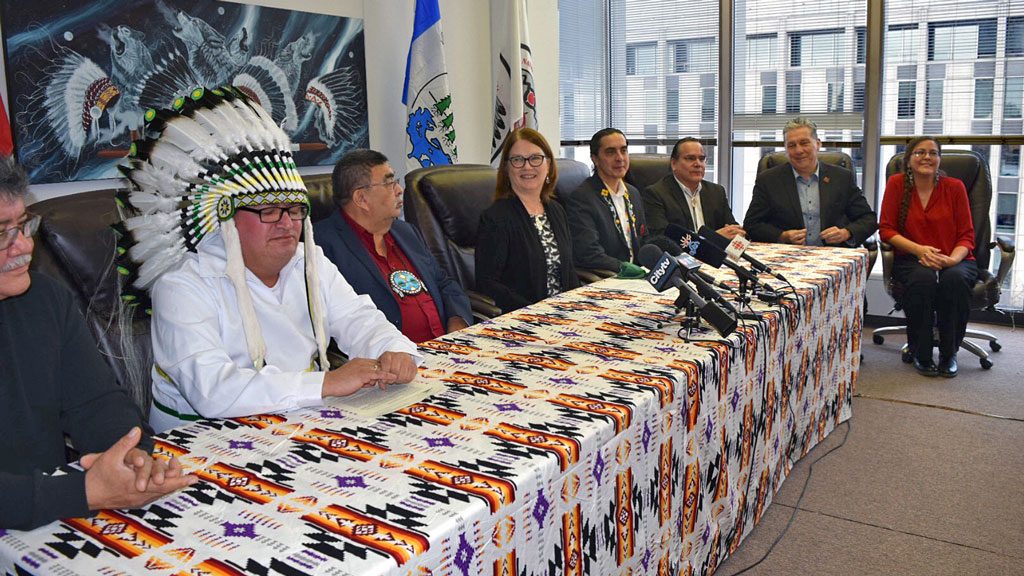Four Manitoba First Nations and the federal government are collaborating on one of the biggest infrastructure contracts ever awarded between First Nations and Indigenous Services Canada (ISC).
Working in partnership with four First Nations communities, the Government of Canada is investing $248 million in new school infrastructure in Bunibonibee Cree Nation, God’s Lake First Nation, Manto Sipi Cree Nation and Wasagamack First Nation along with a retrofit of an existing school at Bunibonibee Cree Nation.
The new schools at God’s Lake, Manto Sipi and Wasagamack will accommodate students from kindergarten to Grade 12 and the existing kindergarten to Grade 6 school will be renovated at Bunibonibee Cree Nation with a new school for Grades 7 through 12.
“For our children this has been a long dream. Today we celebrate with them as their dream has now become true. For every young person there has to be a real way to enjoy their youth and having a nice school is a powerful way,” said Bunibonibee Cree Nation Chief Timothy Muskego in a statement.
“This investment also means that K-12 education will be available in all four communities so that students will not have to leave in order to complete high school. I look forward to the start of construction in Spring 2019,” added federal Minister of Indigenous Services Jane Philpott.
The greatest challenge in building the schools, explained Infrastructure and Housing for Indigenous and Northern Affairs Canada director David Moore, is the remote location of the communities.
“These communities are on winter roads and other than a short period of time, you can only access them by air, so planning and facilitation comes with unique challenges,” he said.
Penn-Co was selected as the construction manager for the project, with a contract signed by the chiefs of each First Nation and the construction company for $190 million. ISC will provide $58 million to support other expenses related to the project.
Penn-Co vice-president of business development Jim Brown agreed winter roads presented the greatest challenge for the company.
“We only have four to six weeks of roads, and we have a thousand loads to deliver,” Brown said.
He added there’s no way to tell whether winter conditions will work to their advantage and allow for more transport time or a warmer winter will mean a shorter window to get the materials to the four school sites.
“It’s not set in stone,” Brown said.
Each project was designed in collaboration with community members and is intended to not only improve educational opportunities but also provide local training and employment.
Making use of what’s available in the community is key to the project, Brown said.
“We use as much community labour, equipment and resources as possible, and we also provide training to First Nations residents both in the classroom and on the job,” he said, adding Penn-Co is partnering with the Manitoba Institute of Trades and Technology.
Penn-Co also has extensive prior experience building schools and other facilities for Manitoba First Nations, Brown added.
“We’ve worked in every First Nation in Manitoba. I can’t count the number of schools built since the company was founded in 1958,” he said.
Moore stressed the importance of collaboration with the process.
“This project demonstrates true innovation through the nation-to-nation decision-making process that was employed,” Moore said.
“We’re working within reconciliation principles, and each community has unique needs,” he added.
In July 2017, Canada’s Department of Justice announced a series of principles guiding its relationship with Indigenous people that “recognizes that
Indigenous self-government and laws are critical to Canada’s future, and that Indigenous perspectives and rights must be incorporated in all aspects of this relationship. In doing so, we will continue the process of decolonization and hasten the end of its legacy wherever it remains in our laws and policies.”











Recent Comments